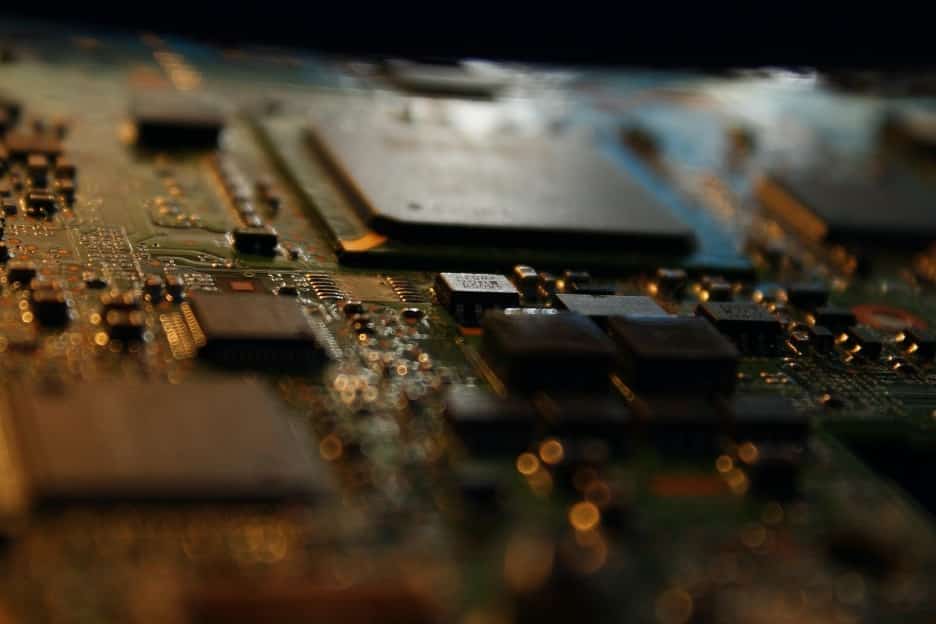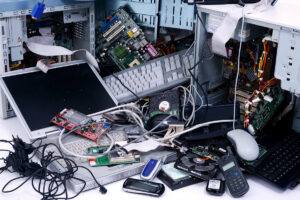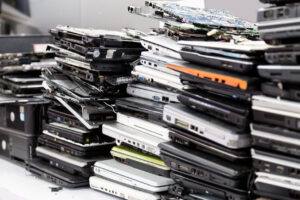
No matter what industry you are in, you probably rely on your devices to keep your business running optimally. Just about every business today needs a state-of-the-art computing network in order to stay competitive. However, maintaining a cutting-edge computing network means that, inevitably, you will rapidly cycle through outdated laptops, tablets, and smartphones. It is important to find a safe, responsible means of electronics recycling so that you can dispose correctly of your old equipment when you upgrade your network.
What Is ITAD?
IT asset disposition, or ITAD, refers to every aspect included in the process of safely disposing of unneeded computing equipment. A good ITAD provider can provide you with expert advice on every aspect of asset disposal. That includes securely wiping data from your old equipment as well as discarding it responsibly.
Your ITAD provider can also figure out which parts of your unwanted equipment can be reused, recycled, or resold. In order to do this, the ITAD provider will evaluate (triage) your devices, some of which might be in good enough condition to re-use while others could be broken down for parts. They also look for devices that store data and separate those out for secure data destruction.
What Is Electronics Recycling?
Broadly, electronics recycling refers to the process of reusing, repurposing, and disposing of unwanted electronics. It’s the best solution when needing to get rid of your old equipment without doing any damage to your business or to the environment.
Improperly disposed-of electronic equipment has the potential to pollute the ground or the water with heavy metals that could hurt living things in the surrounding ecosystems. Your old devices all contain heavy metals. The exact composition will vary from one device to another, but your devices likely contain mercury, lead, arsenic, zinc, or other metals. If they are improperly disposed of, they can leach out into the ground and cause damage to plants, animals, and human beings. Companies that improperly dispose of their electronics can be fined and held liable for the damage caused. A lot of old equipment can be refurbished or reused, but even so, it’s important to make sure that any data left on a device is safely erased so that it can’t be misused or end up in the wrong hands.
Properly executed recycling can resolve these dilemmas. ITAD is an extension of electronics recycling that envelops data security as well as environmental conservation.
When to Recycle and When to Repurpose
It is never a good idea to simply throw away old electronics. Wherever possible, used electronics should be repaired or repurposed to the extent of their usable life. When that is impossible because the components are too worn out or damaged to function, or too outdated to keep up with modern hardware, they should be recycled with a certified electronics recycler.
Repurposing Old Devices
Old laptops, tablets, and phones should all be examined to see whether they can be upgraded and still used before they’re disposed of. If they are still in good working condition, but simply no longer what your business needs, they can be refurbished and sold or donated to charity. If they are broken, it is still possible for them to be repaired and passed along to someone who can use them.
It is a good practice to exhaust all other possibilities before you decide to dispose of any of your electronics. Repurposing your old equipment means that other people won’t need to build new devices with new heavy metals, allowing expensive, sensitive components to stay in circulation for longer before they need to be disposed of.
This also means treating your equipment carefully so that it has a long lifecycle and can be handed over to a new user after you’ve upgraded. Watch out for preventable issues like broken cases and monitors. Protect your devices from being dropped or banged around.
You still want to be conscious of data security. Taking a Do-It-Yourself approach to wiping and reselling or donating hardware can leave you vulnerable to data theft. That is why companies trust their devices to ITAD providers to sanitize and resell on their behalf, removing risk and liability.
What Is an Electronics Recycling Center?
End-of-life electronics are often accepted at scrap metal recyclers and other recycling centers. This is a popular choice for private recyclers getting rid of their personal and household items. Businesses with a larger volume of units to recycle are often better served by a professional ITAD provider.
Do your due diligence and find a recycler that has been certified so you can be sure they will comply with the best practices of environmental stewardship and data security when disposing of your devices.
What Is R2 Certification?
R2 stands for Responsible Recycling. The standard was created by Sustainable Electronics Recycling International, or SERI, specifically for the electronics recycling industry. R2-certified companies receive special training in the safe destruction of any and all data that remains on your devices so that it cannot be discovered by hackers or your competitors.
An R2-certified recycler is required to strip all of the data from your devices before they can proceed any further towards disposing of it. Certified recyclers are subject to regular audits and testing to ensure that procedures are documented and data is securely destroyed.
Working with an R2-certified recycler means that you can be confident that your equipment is being disposed of safely and securely.
Potentially Hazardous Components
Computers and computing equipment may contain hazardous material, including but not limited to:
- Beryllium
- Brominated flame retardants
- Cadmium
- Chromium
- Lead
- Mercury
- Nickel
- Zinc
A well-trained ITAD provider is capable of disassembling an electronic device so that all hazardous components can be safely stored.
For example, older computer monitors may contain cathode ray tubes, or CRTs, which contain leaded gas. CRTs did not pose as great an issue in the past when they were in high demand and could easily be reused in newer machines. Today, however, most new computers use flat-screen monitors, making CRTs obsolete.
The EPA has been working with manufacturers and recyclers to encourage the safe disassembling of CRTs. Experienced recyclers can carry this out by using a process known as controlled glass demolition to separate the glass itself from the lead so that the glass can be recycled and the lead can be safely stored.
What to Look for in an ITAD Company
There are many ITAD companies working in the industry, and it can be tough choosing the right one. Here’s what you should be looking for.
R2 Certification
Working with R2-certified companies means that you’re sure to have a provider that follows safety and security guidelines. In order to obtain certification, the company needs to follow environmental regulations and comply with quality control requirements.
Before you start working with any ITAD company, ask whether they are R2 certified. You can also ask whether they are staying current with the ever-evolving standards of the industry.
Data Sanitizing Procedures
Your data security is one of your paramount concerns. If you’re like most businesses, you don’t just store your own data on your network — you also store data belonging to your customers, and sensitive employee payroll information. It’s your responsibility to safeguard that data in order to protect their privacy.
Before you hire an ITAD company, look into the company’s practices and procedures. Ask the company’s representatives how they erase data from used electronics. Inquire about whether their company resells component parts — and, if so, how the company will ensure the safety of your data before selling the parts.
Check to see whether the company has a data security policy that you can read through. The right company will be happy to provide you with as much information as you need to help you make the right decision for you.
Range of Services
The disposal of electronics is a complex, far-ranging field. You’ll want to find a provider with the most comprehensive set of services possible — ideally one who can help you to evaluate your electronics and determine which can be repurposed and which need to be recycled — a process known as triage.
Beyond that, though, you’ll want a provider that has a thorough understanding of everything involved in the ITAD process so that they can guide you every step of the way, make sure you’re following all the regulations, and help you get through any problems that arise. Experience is a valuable asset.
Insurance
It’s a good idea to choose an ITAD company that has liability insurance. No matter how careful they are, ITAD companies can sometimes become the victims of cybercrime and data breaches. This can carry an enormous cost, which is why it’s so important for your ITAD partner to have the right liability insurance.
Working With Cobalt
Cobalt is a leading IT asset disposition provider connecting organizations with electronics recycling and data destruction solutions. We can guide you through every stage of safe, secure IT asset disposal. You’ll benefit from our years of expertise and our knowledgeable, friendly staff. If you’d like to learn more about working with Cobalt, get in touch today.




